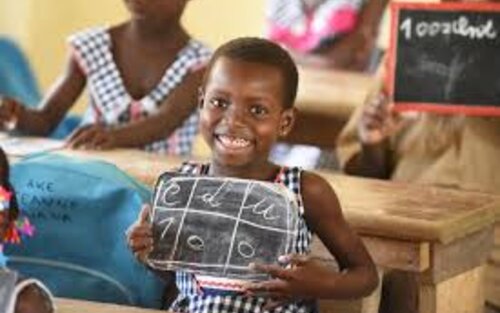Parents whose child arrives in the world with a disability like Trisomy 21 (Down's syndrome), initially find themselves in a state of crisis. They are confronted with countless questions.
One of these is, what encouragement and support is possible and necessary so that the child can get the most out of his/her individual opportunities and talents and develop as well as possible, despite typically slow physical, motor, mental, and verbal development.
Individual manifestations of Down's syndrome
A universal answer to this question does not exist. As with every other child, a child with Trisomy 21 has his/her own independent personality with individual character, strengths, weaknesses, and an idiosyncratic manifestation of the Down's syndrome itself.
To this end, the support of the child is also unique and is dependent on how strongly the disability manifests. In general, the physical motor development, as well as the mental and verbal development, are usually slower than with other children.
Supports should be introduced early
To support children with Down's syndrome in their personality and their skills development, individual supports need to be introduced early. This early help should be tailored to the individual needs in an interdisciplinary system with medical, psychological, therapeutic and educational input.
Applied to children with Down syndrome and with a view toward the child's overall personality development, early intervention can include:
-
Speech and language therapy (logopedics)
-
Early reading to promote speech and language development
-
Use of signs and gestures to support speech
-
Occupational therapy and physiotherapy (development of muscle development and motor skills)
-
Promotion of individual special talents
-
Consolidation of developmental steps already acquired
-
Regular discussions and consultations with parents
If these opportunities are maximized and the children with the respective disability respond positively to them, then it may be possible for them to eventually attend integrative kindergartens and schools. The social and emotional skills of children with Down's syndrome are usually well-developed so it's not out of the question for them to attend a regular school, to gain employment, or to even lead a relatively independent life.
Security in the family
But it’s a long way until that point - and the parents, family, and relatives need a lot of time and a lot of empathy. Children with Down's syndrome have the same needs as all children. But they have a higher need for support, and above all they want to feel safe in their family.
They want to feel love, affection, and attention from Mom and Dad, from siblings, from grandparents and from other relatives. Just as with children without disability, the affection of the family is considered the ideal basis for a successful life in children with Trisomy 21.
Parents also need support
Parents are challenged on all fronts. The diagnosis of Trisomy 21 raises emotions like doubt, sadness, anger, or guilt. Those affected have doubts they can cope with the situation or that they can provide the additional support costs. Over time, with the new everydaylife, the negative emotions begin to dissipate, even when the situation often remains difficult.
Support groups and information centres play an important role in the support of parents of children with Trisomy 21. But this also applies to the family's social circles. It's not enough to just offer help. Parents of children with Down's syndrome want to feel that their child is accepted, that the interest in him or her is there and, above all, genuine - and that they are perceived as a family without compromise.

